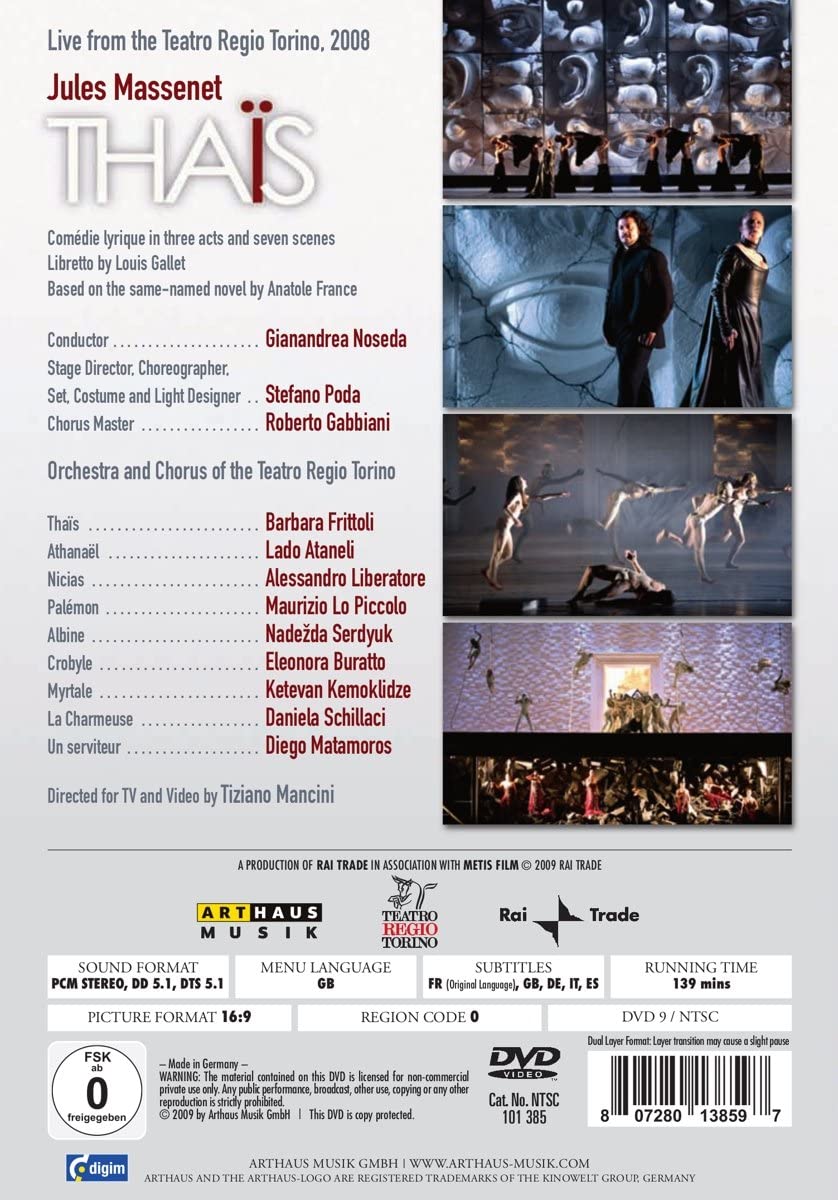
kompozytor
Massenet, Jules
tytuł
Massenet: Thais
wykonawcy
Noseda, Gianandrea;
Orchestra e Coro del Teatro Regio Torino
Orchestra e Coro del Teatro Regio Torino
nr katalogowy
DVD 101385
opis
Thaïs, a mature work by the composer Jules Massenet on the libretto by Louis Gallet, it is based on the novel of the same name by Anatole France. The new production of this rarely performed work is the result of more than a year of close collaboration between the forces of the Theatre and Stefano Poda, responsible, for the first time in Italy, for the direction, choreography, sets, lighting and costumes. On the podium, Gianandrea Noseda, who, seduced by the dramatic force and modernity of the orchestral writing, conducts Thaïs for the first time; a debut also for the protagonist Barbara Frittoli, who has chosen the Regio to make her debut in this difficult role. Georgian baritone Lado Ataneli gives an impressive study of the monk Athanaël. Purified of the anticlerical excesses of Anatole France's original novel, the libretto by Louis Gallet retains the sensual charge, and above all, the irony which, though remaining underplayed, contributes to keeping alive a subject that has possible references to the contemporary world. The taste for the orient that characterised French culture during the nineteenth century had become, by the end on the century, a truly dominant theme in literature, painting and theatre. In Thaïs, which had its debut in 1894, exoticism becomes the vehicle of a trend which is explicitly decadent, containing themes typical of fin-de-siècle art, i.e. the contrast between sacred and profane, transgression and the figure of the femme fatale. The story, which stands out against the background of Alessandria in Egypt in all its opulence and refinement, culture and indolence, presents us with the crossed destinies of Athanaël, a Cenobite monk whose missionary zeal borders on fanaticism, and Thaïs, a famous courtesan who, worried about the transience of her beauty, lets herself be convinced to search immortality in the love of God.
nośnik
DVD
gatunek
Muzyka klasyczna
producent
Arthaus
data wydania
25-08-2009
EAN / kod kreskowy
807280138597
Produkt nagrodzony:
Classic FM: 'Editor’s Choice' (2011)

(Produkt nie został jeszcze oceniony)
cena 105,00 zł
lubProdukt dostępny.
Wysyłka w ciągu 3 dni roboczych
Darmowa wysyłka dla zamówień powyżej 300 zł!
Darmowy kurier dla zamówień powyżej 500 zł!
sprawdź koszty wysyłki










































